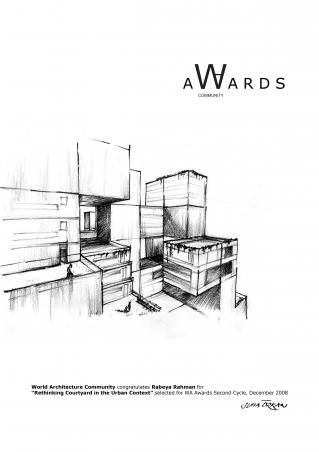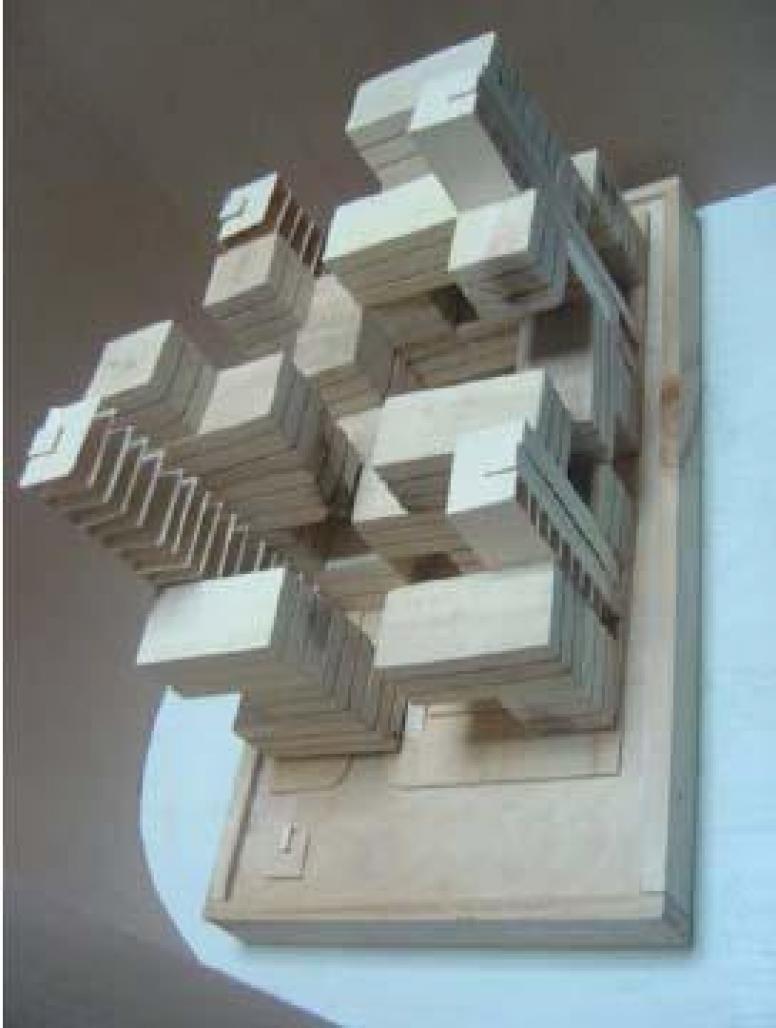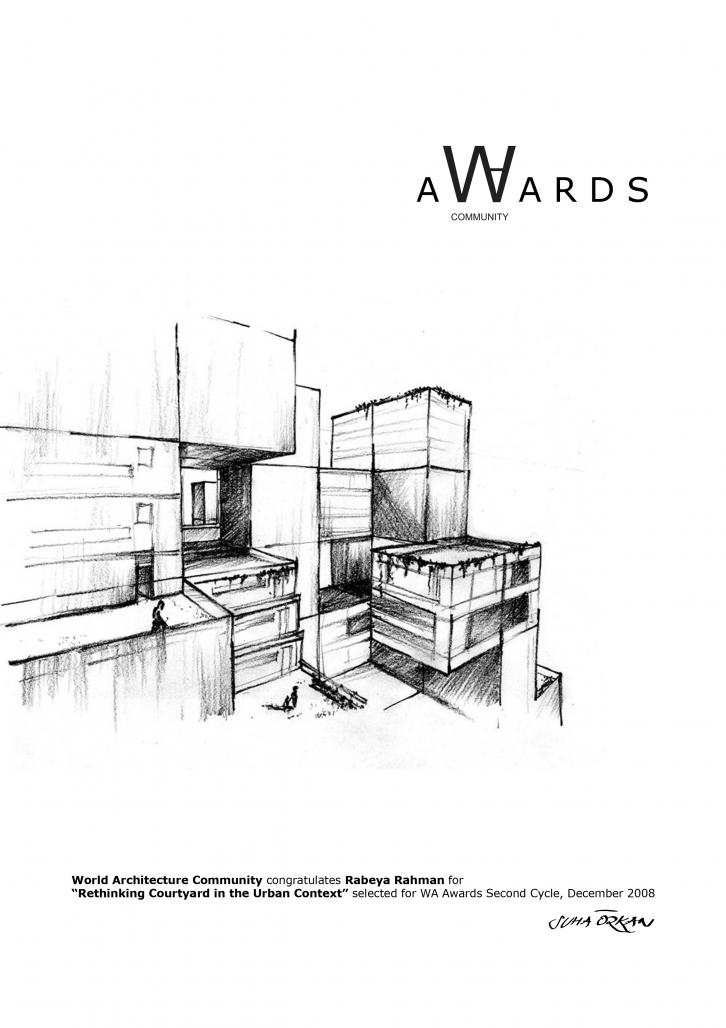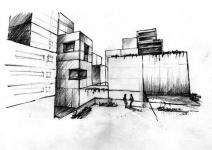The contemporary urban residences of Dhaka City is said to be the outcome of a series of “transformation” and “adaptation” that are still continuous. Various urban forces generated at different times and in phases, have over the years played an important role in shaping up the urban residences. The beginning of urbanization started with the migration of rural people. Even today many people in cities have rural roots and there is thus the continuity of many rural behavioral and cultural patterns in the urban context. The similarity in layout and use of space between the rural homestead and urban apartments is an example of that. The element which is inseparable from both the context is “the courtyard” which has undergone transformation from the beginning of urbanization, till now. Up till a few decades back the ‘courtyard’ was reduced to a ‘court’ due to limitation of land and an increasing demand to provide accommodation for the ever increasing population. As a result, the space was losing its essence, its purpose- socially, climatically and physically. Thus an attempt was made to revive its features by introducing another phase of transformation that this may have undergone- its free-flowing characteristics i.e. the outdoor becoming the indoor, its linkages with the surrounding landscape, spaces, a living space where the family members can interact with each other at leisure with neighbors as well as among themselves. At present, since all the residential buildings are multi-storied so the vertical relationship along with the horizontal relationship, the semiotic and not to mention the climatic aspects were taken in to consideration
2007
2007
Rethinking Courtyard in the Urban Context by Rabeya Rahman in Bangladesh won the WA Award Cycle 2. Please find below the WA Award poster for this project.

Downloaded 285 times.
Favorited 2 times




.jpg)


